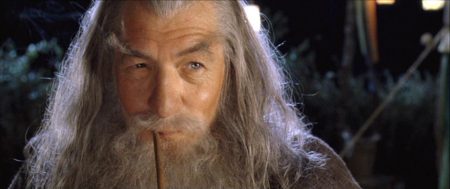You need not be especially political to feel anxiety in this moment. Unless you live in a cave, you are confronted by the rapacious onslaught of attack ads, one uglier than the next, intended to instill fear and somehow win your allegiance. Amidst the unrelenting cacophony, the words of Henry Adams come to mind when he called politics “the systematic organization of hatreds.” But hatred is simply a vortex that descends into deeper levels of hatred, which leads to an assortment of other unpleasant experiences such as panic, despair, and dread.
A helpful insight to allay one’s dread comes from J. R. R. Tolkien’s work, The Lord of the Rings. While it was not necessarily written as an intentional analogy of the Christian faith, Christian themes emanate from a classic struggle between good and evil—between the free peoples of Middle Earth and Sauron and his minions. Below is a quote from the first book of the epic, The Fellowship of the Ring. Gandalf the Wise, a leader of the opposition against evil Sauron, has just explained to Frodo the desperate situation that is before them. While Frodo’s mournful response is understandable, Gandalf does not accept a spirit of despair; instead he points Frodo to what they can and must do—exhibit wisdom and courage in their critical moment.
“I wish it need not have happened in my time,” said Frodo.
“So do I,” said Gandalf, “and so do all who live to see such times. But that is not for them to decide. All we have to decide is what to do with the time that is given us.”1
![]()
![]() Footnotes:
Footnotes:![]()
1 J. R. R. Tolkien, The Fellowship of the Ring, 2nd edition (Boston: Houghton Mifflin Company, 1993), 60.





